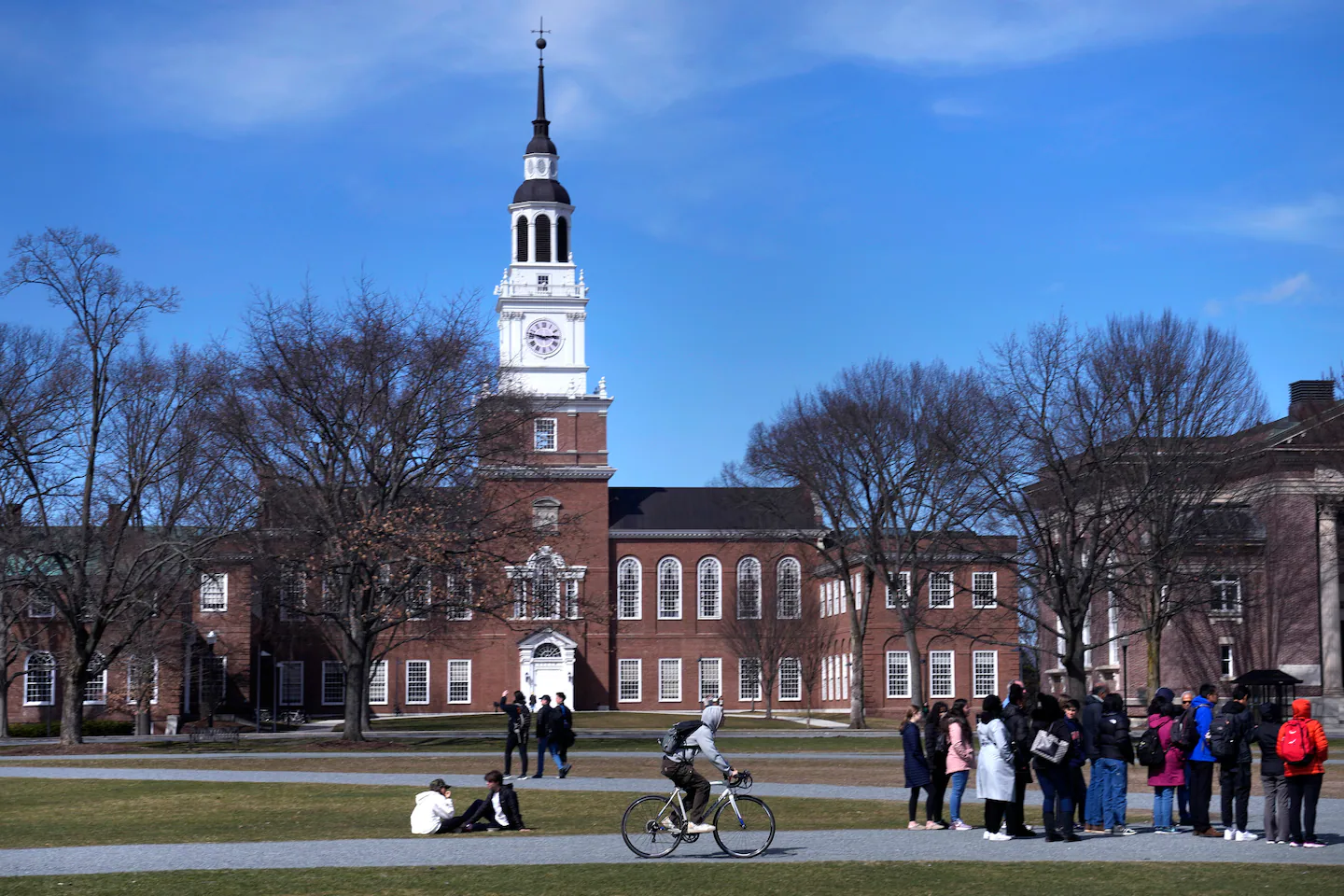
Dartmouth was among the nine top-tier universities the Trump administration contacted regarding the compact, titled “Compact for Academic Excellence in Higher Education.”
The 10-point compact would require the colleges to cap enrollment of international students, freeze tuition rates charged to US students for the next five years, limit university employees’ actions and speech related to societal and political events, and commit to Trump’s definitions of gender, among other things.
“We demand that you refuse the compact now, and join us in speaking out against this unprecedented attack on higher education,” the petition said.
Dartmouth and the other universities were asked to provide feedback on the draft by Oct. 20, Beilock wrote in a statement to the Dartmouth community on Oct. 3.
“I am deeply committed to Dartmouth’s academic mission and values and will always defend our fierce independence,” Beilock said in the statement.
“You have often heard me say that higher education is not perfect and that we can do better,” she continued. “At the same time, we will never compromise our academic freedom and our ability to govern ourselves.”
A spokesperson for Dartmouth did not respond to a request for comment on the petition or Beilock’s response to it.
“There’s a lot of concern about the compact,” said Pamela Voekel, associate professor of history at Dartmouth, who signed the petition opposing the compact.
The more than 500 signatories represent a significant percentage of Dartmouth’s faculty. As of 2024, there were 1,052 total faculty, according to data from the university.
Voekel said she was among what she described as a crowd of professors who delivered the petition to Beilock’s office on Thursday afternoon, following a meeting of Dartmouth’s chapter of the American Association of University Professors.
“There was a lot of discussion that the executive branch of government has no right at all to be asking for these things,” Voekel said.
“Before we even get to the kind of horrors represented within the compact, we don’t feel like the president should be negotiating at all,” she said. “This is a moment where they’re going after yet another pillar of civil societies.”
Beilock did not meet with the professors, but her secretary accepted the petition from them on her behalf, according to Voekel.
There was a wide range of faculty from around the university who signed the petition, including scientists, faculty from Dartmouth’s business school, and humanities professors.
Annelise Orleck, a history professor at Dartmouth, was among them. She said she would like to see Beilock go further in rejecting the compact, which she called a “draconian exercise of control over curriculum.”
She said librarians and students are also involved in their own petition drives opposing the compact. She said it would give the administration in Washington far too much control over many aspects of the college.
“As I see the compact, it is the end of higher education as I have known it for my entire career,” she said.